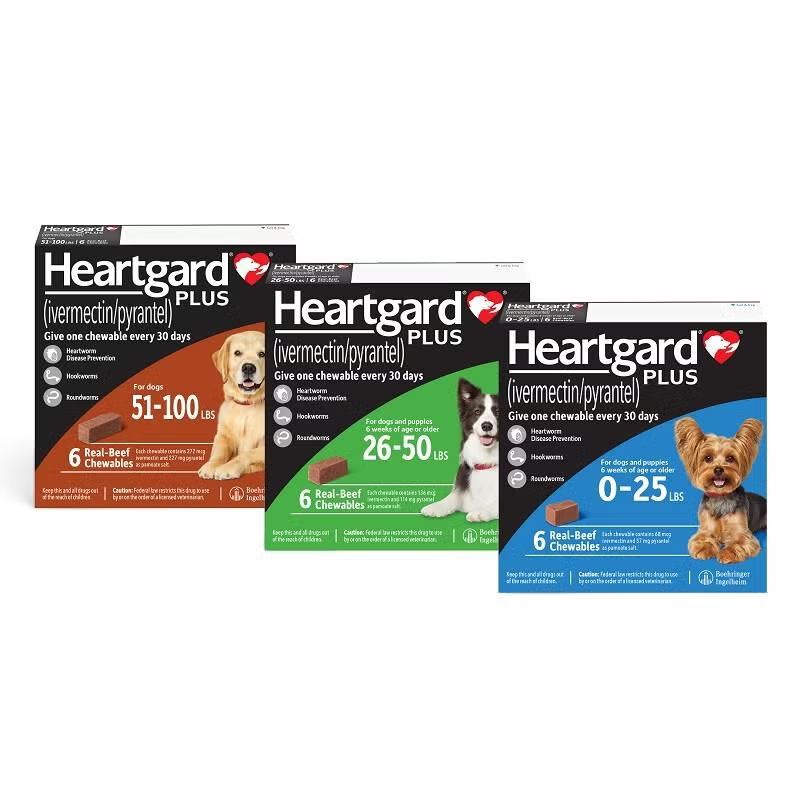Heartworm disease is a potentially life-threatening condition that affects dogs of all breeds and sizes. Caused by parasitic worms transmitted through mosquito bites, this illness can damage your dog’s heart, lungs, and blood vessels if left untreated. Fortunately, it’s preventable with consistent medication. But a common question many pet owners ask is, “How do I get over the counter heartworm medicine for dogs?”
While prescription treatments are widely recommended, there are a few over-the-counter (OTC) options that can support your dog’s parasite protection routine. In this article, we’ll walk you through how to approach OTC heartworm meds, what to look for, and five trusted options you can explore.
Can You Get Over the Counter Heartworm Medicine for Dogs?
The idea of skipping the vet visit and picking up heartworm medicine at your local pet store is appealing, but it’s important to understand the difference between prescription and OTC products. In most cases, heartworm preventatives like Heartgard or Trifexis require a vet’s prescription because they include strong ingredients that target parasites at specific stages of their lifecycle.
That said, certain over-the-counter treatments can assist in parasite control, especially products that help eliminate intestinal worms like roundworms, hookworms, or tapeworms. Some of these may include ingredients that also affect heartworm larvae, but they are typically not as comprehensive as prescription treatments. Using OTC meds without guidance can pose risks, especially if a dog is already infected with heartworms, as killing the worms too quickly can lead to serious complications.
So, while OTC options exist, they should be used with caution and ideally with some input from your vet. They may not serve as complete substitutes for prescription heartworm prevention but can still play a role in your dog’s overall parasite defense plan.
What to Look for in Over the Counter Heartworm Medicine

If you’re exploring non-prescription options, it’s essential to know what makes a product safe and potentially effective. First and foremost, check the label for proven active ingredients. Ivermectin and pyrantel pamoate are common in both OTC and prescription dewormers. Ivermectin is especially known for targeting heartworm larvae, while pyrantel is effective against roundworms and hookworms.
Additionally, look for FDA approval or clear recommendations from veterinary sources. Products that lack regulatory backing or come from unknown brands could pose more harm than good. Also, be sure the dosage is appropriate for your dog’s size and weight. Many medications come in chewable or topical forms, so choose one that suits your pet’s preferences.
Lastly, consider whether the product offers multi-parasite protection. Some options not only work against worms but also fleas, ticks, and mites, providing an all-in-one solution for overall health management.
Five Trusted Over the Counter Heartworm Medicine Options
Although most powerful heartworm treatments require a vet’s prescription, some products on the market have gained trust among pet owners for their role in parasite control. Here are five over-the-counter options that you can consider for supporting your dog’s protection against worms.
One popular choice is PetArmor 7 Way De-Wormer, which contains praziquantel and pyrantel pamoate. This broad-spectrum dewormer is designed to treat hookworms, roundworms, and tapeworms. While it does not directly prevent heartworms, it is often used as part of a regular deworming routine.
Sentry HC WormX Plus is another commonly used OTC option. Like PetArmor, it contains pyrantel and praziquantel and is effective against a variety of intestinal worms. Though it won’t replace heartworm-specific medications, it can help keep your dog worm-free in between vet visits.
You may also come across Iverhart Max, which combines ivermectin, pyrantel, and praziquantel. While it is generally a prescription-only product, some generic versions or international sources may offer it OTC. Its inclusion of ivermectin does offer heartworm prevention, but you should be cautious about sourcing and dosage.
Durvet Triple Wormer is widely available and offers a similar spectrum of protection against roundworms and hookworms. However, like others in this category, it does not protect against heartworms directly and should be paired with a suitable heartworm preventative.
Finally, Revolution and its generic equivalents are known for their ability to fight fleas, ticks, ear mites, and heartworms. Though Revolution typically requires a prescription, some generic forms are occasionally available OTC. These should only be used with proper guidance and source verification.
How to Safely Give Your Dog Heartworm Medicine
Even with OTC options, proper dosing and administration are crucial. Always read the instructions on the packaging, and administer medications based on your dog’s current weight and age. Chewables can be disguised in food, while topical treatments should be applied to the skin in areas your dog can’t lick.
Watch for any side effects such as vomiting, diarrhea, or lethargy after giving the medicine. If your dog exhibits unusual behavior or reactions, contact your veterinarian immediately. Consistency is also vital—missing even one dose can leave your dog vulnerable to infection, especially during peak mosquito season.
Where to Buy Over the Counter Heartworm Medicine
Over-the-counter heartworm and deworming products can be found in most pet stores, both in-person and online. Websites like Chewy, Amazon, and Petco often carry a wide selection. However, for peace of mind and quality assurance, it’s best to buy from a trusted source like Medsniff.com, where products are carefully selected with your pet’s health in mind.
Avoid purchasing from unfamiliar or unverified retailers, as counterfeit medications are a growing problem in the pet care market.
Final Thoughts Before You Choose an OTC Option
Before making any changes to your dog’s heartworm prevention plan, a consultation with your vet is always the safest first step. Some dogs may require a heartworm test before starting a new medication, especially if there’s a gap in their treatment history. Additionally, combining OTC dewormers with prescription preventatives may offer the most comprehensive protection, especially in areas with high mosquito populations.
Stick to a consistent monthly schedule, monitor your dog’s health closely, and choose well-reviewed products from reliable sources. OTC options can be helpful tools, but they should be used responsibly and never as a one-size-fits-all solution.
Conclusion
Preventing heartworm disease is one of the most important things you can do for your dog’s long-term health. While most heartworm medications require a prescription, some over-the-counter options can support your pet’s wellness routine—especially those that address intestinal parasites and offer limited heartworm prevention benefits.
By understanding what to look for and selecting from trusted products like those listed above, you can take a proactive step toward keeping your dog safe. And with reliable sources like Medsniff.com, you have access to quality products without the guesswork.
When in doubt, consult your vet, stay consistent, and keep your pup protected year-round.



